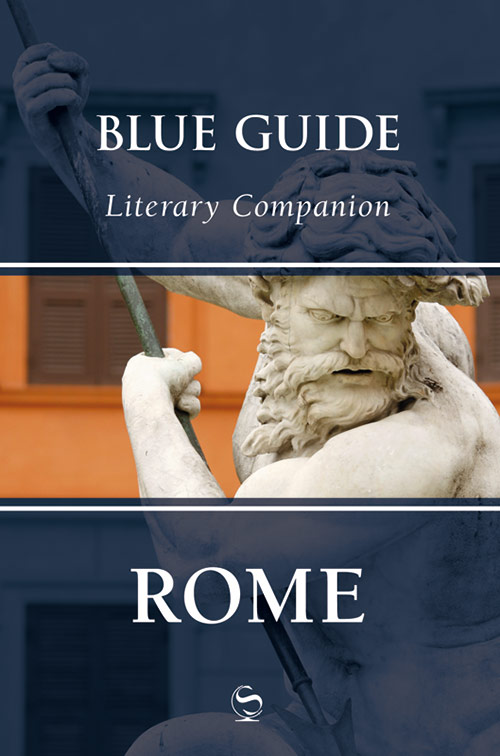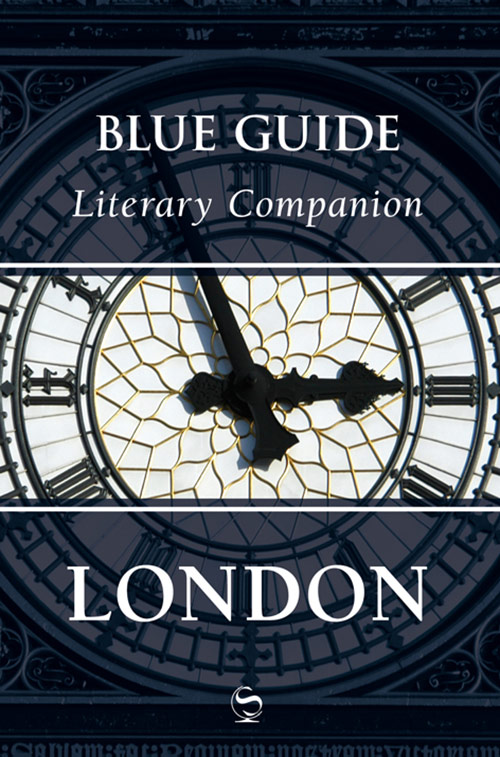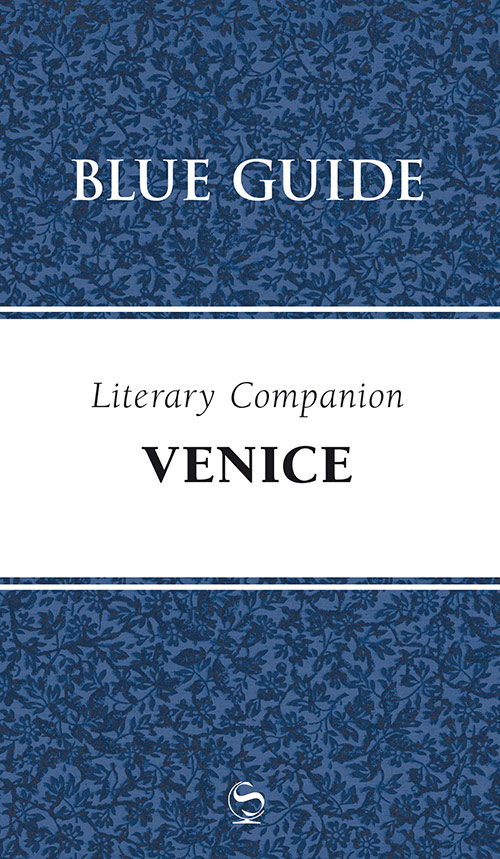   |
Entertaining anthologies of writing–extracts from novels, letter, diaries, poems, histories, guide books–about or set in the destination. Lively introductions to each excerpt make them a pleasure to browse, a mine of fascinating insights to enjoy at home or to supplement a guide book on site.







“Focus on Blue Guides”
The Good Book Guide in its May 2012 “Focus on Blue Guides” on the subject of Literary Companions London and Rome:
“The voices of Pepys, Wilde, Jane Austen and Wilfrid Owen, amongst many others, are all heard, their different experiences of the metropolis offering either a browser’s delight or a useful guide-book supplement.”
“The Rome Literary Companion shows just how its many attractions beguiled the likes of Henry James, Byron and Dickens, as well as today’s contemporary travellers.”
http://www.thegoodbookguide.com/
Book of the Month
Blue Guide Literary Companion Rome is Where Rome’s book of the month:
‘A neat companion to travels in Rome organised by interesting themes from Women to Water. Absorbing for armchair voyagers as well as visitors to the city!’
Literary London
Historian Giles Morton on Literary London:
“Strikingly original and idiosyncratic, Robin Saikia’s Blue Guide Literary Companion London is a literary masterpiece. Opium dens, Turkish baths, plague pits and a spectacular tiger fight in the East End … Even Prince Charles has a walk-on part. This is the finest anthology about London to appear in more than half a century.”
Literary Companion London
Literary Companion London reviewed in the Spectator
London has been the subject of more anthologies than Samuel Pepys had hot chambermaids. This is fitting, as an anthology’s appeal — unexpected juxtaposition — matches that of the capital itself. But it does mean that any new contender has to work hard to justify its publication. Irreverence is one possible route, and here the Blue Guide Literary Companion: London scores well, with Trollope spilling ink over a pompous colonel, and Keats struggling not to snigger as Wordsworth is buttonholed by a tedious fan. There are interesting historical snippets: at top-notch Victorian funerals mourners were given paper packets of gravel to sprinkle on the coffin, while the phrase ‘the great unwashed’ was coined by Edward Bulwer-Lytton in a novel of 1830. In an extract from the same writer’s Pelham, the title character remonstrates with a tailor overly-keen on padded suits: ‘You will let me for once have my clothes such as a gentleman can wear without being mistaken for a Guy Fawkes.’ Overall, though, the selection feels rooted too much in the past. In one of the very rare post-second world war entries we get the Prince of Wales’s 1987 speech bemoaning the fact that anybody after Wren was allowed to build anything in London (but with more wit perhaps than we remember): ‘You have to give this much to the Luftwaffe: when it knocked down our buildings it didn’t replace them with anything more offensive than rubble’. But if we don’t change we die. And what sort of tribute is that to a city?
http://blogs.spectator.co.uk/books/2011/03/bookend-capital-rewards/
The duty to excise
The duty to excise: the Editor responds to the Spectator review of Literary Companion London:
Sir: I write with reference to Mark Mason’s review of the Blue Guide Literary Companion: London (Bookends, 26 March). Let me declare an interest: I am the series editor. Mr Mason laments the lack of contemporary extracts. Pity poor anthologists! We all begin with evenly balanced lists, but permissions do not come cheap. Hundreds, even thousands of pounds can be quoted for world rights, especially from the larger houses. Slowly but surely those balanced lists begin to tip towards the 19th century. Martin Amis: OUT, Peter Wildeblood: OUT, Michael Holroyd: OUT. And that is not to mention copyright holders who never reply. We all live in fear and trembling of litigation. After two months with no response, despite repeated attempts, do I dare to publish? Or do I excise? The printer has ordered the paper. The distributor has alerted his reps and will sack me if I am late with delivery again… I excise. One other point, though. You accuse us of being stuck in the past. But we, the living, are, by virtue of our incarnate state, necessarily stuck in the present. We can buy the works of contemporary authors from any branch of Waterstone’s. It takes a Blue Guide to track down Mrs Mitton.